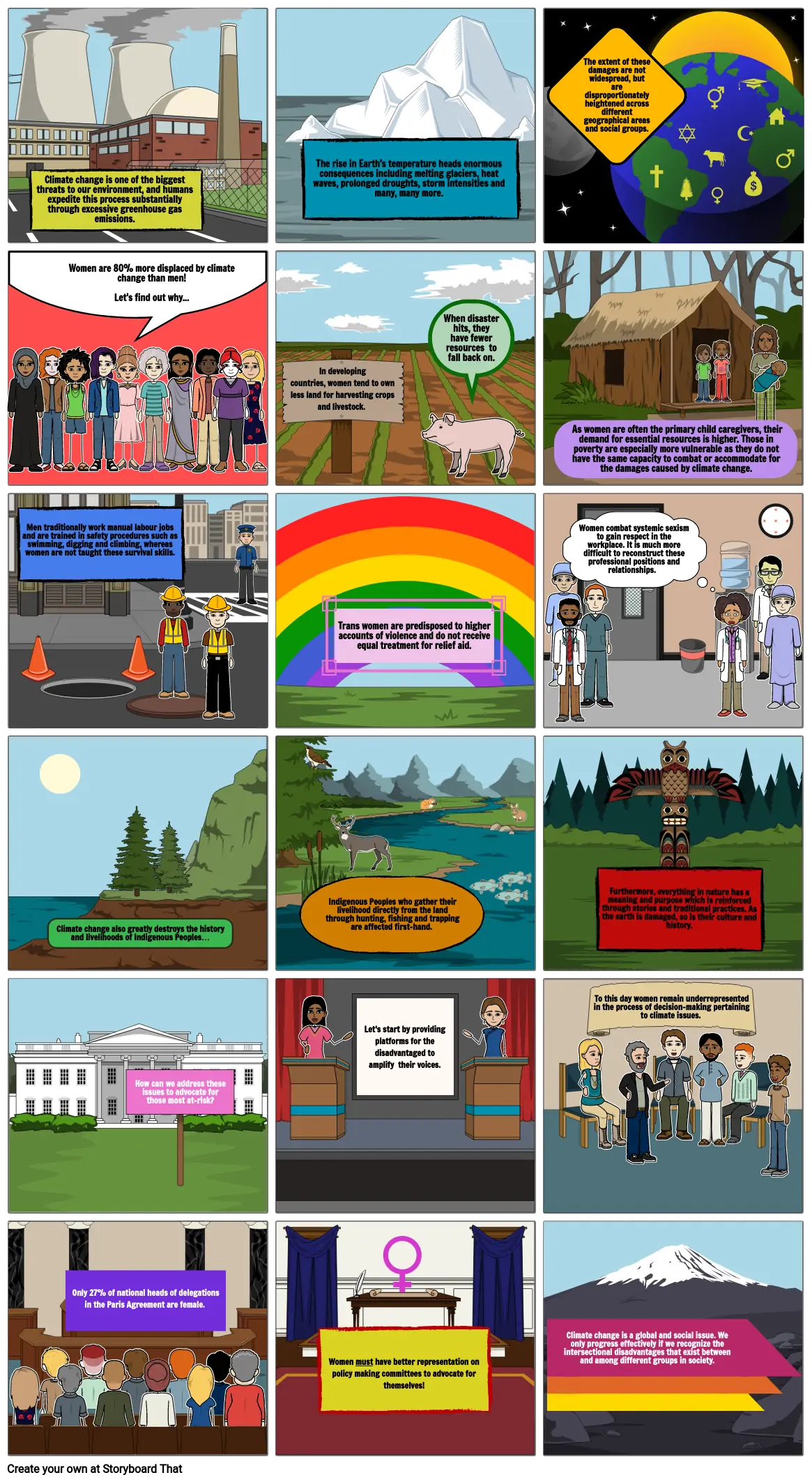Climate Injustice

Storyboard Text
- Climate change is one of the biggest threats to our environment, and humans expedite this process substantially through excessive greenhouse gas emissions.
- The rise in Earth’s temperature heads enormous consequences including melting glaciers, heat waves, prolonged droughts, storm intensities and many, many more.
- The extent of these damages are not widespread, but are disproportionately heightened across different geographical areas and social groups.
- Women are 80% more displaced by climate change than men! Let's find out why...
- In developing countries, women tend to own less land for harvesting crops and livestock.
- When disaster hits, they have fewer resources to fall back on.
- As women are often the primary child caregivers, their demand for essential resources is higher. Those in poverty are especially more vulnerable as they do not have the same capacity to combat or accommodate for the damages caused by climate change.
- Men traditionally work manual labour jobs and are trained in safety procedures such as swimming, digging and climbing, whereas women are not taught these survival skills.
- Trans women are predisposed to higher accounts of violence and do not receive equal treatment for relief aid.
- Women combat systemic sexism to gain respect in the workplace. It is much more difficult to reconstruct these professional positions and relationships.
- Climate change also greatly destroys the history and livelihoods of Indigenous Peoples…
- Indigenous Peoples who gather their livelihood directly from the land through hunting, fishing and trapping are affected first-hand.
- Furthermore, everything in nature has a meaning and purpose which is reinforced through stories and traditional practices. As the earth is damaged, so is their culture and history.
- How can we address these issues to advocate for those most at-risk?
- Let's start by providing platforms for the disadvantaged to amplify their voices.
- To this day women remain underrepresented in the process of decision-making pertaining to climate issues.
- Only 27% of national heads of delegations in the Paris Agreement are female.
- Women must have better representation on policy making committees to advocate for themselves!
- Climate change is a global and social issue. We only progress effectively if we recognize the intersectional disadvantages that exist between and among different groups in society.
Över 30 miljoner storyboards skapade

